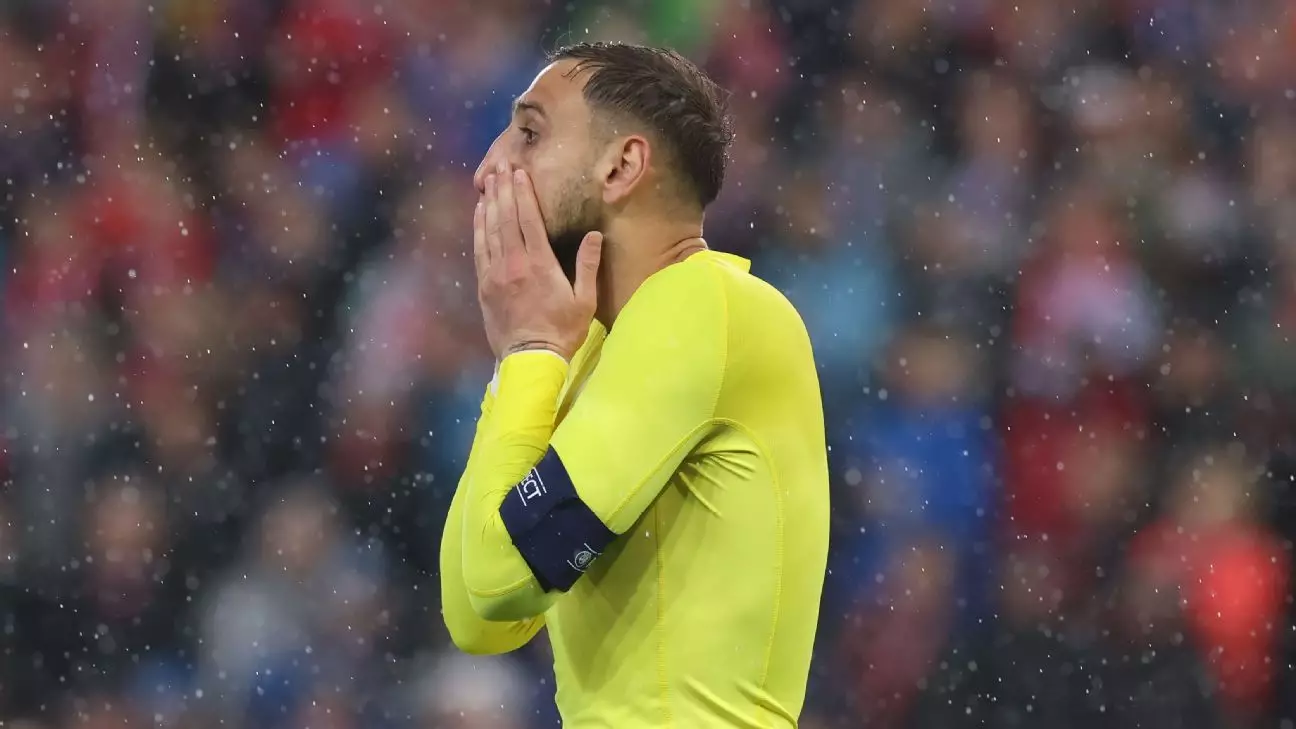The echoes of Italy’s historic football legacy seem to fade further into the background following their dismal 3-0 defeat to Norway, an outcome that has reignited discussions about the state of Italian football. With a humbling start to their World Cup qualifying campaign, the three-time World Cup winners find themselves grappling with a harsh reality. Gianluigi Donnarumma, Italy’s standout goalkeeper, was understandably frustrated with the team’s performance, labeling it “not acceptable.” Such a sentiment reflects a deeper unease in the footballing community surrounding the Azzurri—a national team that, only a decade ago, consistently showcased its prowess on the world stage.
Since their last World Cup appearance in 2014, Italy has undergone a painful reconstruction. The departure from their trusted blueprint has left them at a crossroads. This loss in Oslo, punctuated by goals from Alexander Sørloth, Antonio Nusa, and the ever-dangerous Erling Haaland, was not merely a setback; it underscored a troubling trend. Once the giants of global football, Italy now risks being marginalized unless swift action and introspection are taken.
Response or Responsibility?
It is easy to criticize the players, but a holistic examination of their mindset is essential. Donnarumma’s emotional appeal to examine their conscience points towards a need for collective accountability that extends beyond individual talent. “Our fans don’t deserve this,” he remarked, capturing the essence of the mounting frustration within the Italian fanbase. The weight of expectations for a nation rich in football history must now translate into an urgent and unified response from both players and management.
Head coach Luciano Spalletti’s comments indicate a critical awareness of the need for enthusiasm and energy within the squad. According to him, the Italian side lacks the drive that has historically defined the team’s ethos. This is not just a technical issue; it’s a deeply psychological one. While they are current European champions, that trophy feels distant amid a backdrop of underwhelming performances. Spalletti’s remarks about needing to “add something more” highlight a palpable disconnection between the players’ potential and their on-field execution.
A National Crisis in Confidence
The Italian football community must confront a critical question: Is this just a temporary setback, or are we witnessing the unraveling of a footballing identity? The defensive lapses that saw Italy struggle to contain Norway’s counterattacks demonstrated not just a lack of tactical discipline but a fundamental lack of confidence. Their inability to maintain an offside trap or track down relentless opponents reveals a fragility inconsistent with Italy’s storied legacy of defensive mastery.
Spalletti’s candid acknowledgment of “worries” post-defeat indicates an awareness that complacency could lead to a sustained decline. The upcoming games are not merely qualifiers; they are vital tests of resilience and character. If the players possess the quality, which Spalletti believes they do, they must summon an inner strength stronger than the immediate pressures tied to performance. Such a duality—creativity entwined with discipline—has generally marked the finest Italian teams throughout generations.
Shifts in Strategy: A Need for Radical Change
With the head of the Italian Football Federation looming, Spalletti’s impending dialogues with Gabriele Gravina should focus not just on tactics, but on an overarching vision to rejuvenate Italian football. Speculation is rife regarding possible tactical shifts or even a reconsideration of players within the squad paradigm. However, radical changes come with inherent risks; the current environment does not lend itself to stability.
The situation could serve as a crucible for the team’s integrity, compelling them to dig deep into what it means to wear the Italian jersey. Footballing legacies can be resurrected if rooted in a culture of self-examination and accountability at every level, from the grassroots to the professional realms. If Italy aims to return to the World Cup in 2026 while resonating with their former glory, there must be collective introspection, driven by passion and resulting in a cohesive reinvention of their footballing philosophy.
In a world where footballing traditions are being reshaped, Italy stands at an existential juncture. Their task ahead is not simply about qualifying for tournaments; it is about rediscovering what has long made them champions. Only then can the echoes of past glories become the catalysts for future triumphs.

